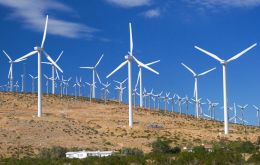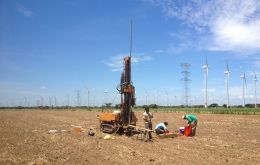MercoPress. South Atlantic News Agency
Energy & Oil
-
Monday, August 3rd 2020 - 09:45 UTC
Major sale of gas station network in the US for an all cash deal of US$ 21bn

Marathon Petroleum Corp sold its Speedway gas station network to 7-Eleven Inc, a subsidiary of Japan's Seven & Holdings Co, for US$21 billion in an all-cash deal, the companies said on Sunday.
-
Friday, July 31st 2020 - 10:20 UTC
Lack of political stability in Guyana is delaying expected oil output

Guyana’s crude production has reached 100,000 b/d, 25% up on June, energy department director Mark Bynoe revealed even as the country continues to see an announcement on the 2 March, 2020 election results pushed further and further into the year.
-
Tuesday, July 21st 2020 - 08:53 UTC
Chevron buys Noble Energy in a US$ 5 billion all stock deal

Chevron said Monday it would buy Noble Energy in a US$ 5 billion all-stock deal, bolstering its shale presence as a plunge in crude prices have made assets cheaper. The deal, the largest in the U.S. energy sector this year, comes more than a year after Chevron abandoned its offer for Anadarko Petroleum, outmaneuvered by Occidental Petroleum higher bid.
-
Monday, July 20th 2020 - 09:30 UTC
Wind power in Brazil represents 9% of the energy matrix

Wind energy is advancing in Brazil and now represents 9% of the energy matrix the state of Ceará, northeast, ended 2018 with 2,050.5 MW of installed wind power capacity, in 80 wind farms.
-
Monday, July 20th 2020 - 09:29 UTC
Brazilian oil industry showing resilience to coronavirus pandemic despite fall in investment

By Matthew Smith for Oilprice.com – Before the outbreak of COVID-19 and the oil price war between Saudi Arabia and Russia, an oil boom of monumental proportions was underway in Brazil, Latin America’s largest economy. Economists and industry analysts as far back as 2018 were speculating that it would be the largest in Latin America’s history. There were even signs that Brazil’s burgeoning oil production could challenge OPEC’s wanning supremacy.
-
Wednesday, July 15th 2020 - 08:55 UTC
Exxon resumes drilling in Guyana; local politics battle over the future oil revenue

Exxon Mobil resumed drilling in Guyana last month, underscoring its dedication to the offshore hotspot despite the oil price crash and a messy turn in local politics.
-
Wednesday, July 15th 2020 - 08:52 UTC
Canadian investors question Mexican government energy policy, which privileges the state's role

As Mexico celebrated a new trade deal with the United States and Canada on July 1, a group of Canadian energy investors warned their government that Mexico could already be violating the agreement for failing to respect contracts.
-
Tuesday, July 14th 2020 - 09:50 UTC
The virus has reached Petrobras offshore oil rigs; prosecutors investigations into the outbreaks

On Friday, May 1, two workers on the PXA-1 offshore platform owned by Brazil's state-run oil company Petrobras checked into the facility's infirmary complaining of headaches and fever-like symptoms. Another Petrobras employee fell visibly ill the following day, according to Brazilian media.
-
Tuesday, July 14th 2020 - 09:49 UTC
Russia replaces Venezuela as supplier of heavy fuel to US refineries

Russia kept fuel oil exports to the United States close to its record-highs in the first six months of this year, as Washington looks to replace the heavy Venezuelan barrels it stopped buying a year ago, traders said and data showed.
-
Monday, July 13th 2020 - 08:39 UTC
Copper prices hit their highest in two years, over a Chilean miners' strike

Shanghai copper hit its highest in nearly 25 months on Monday, while London copper scaled a 24-month high, on supply worries from top producer Chile due to a potential strike at a mine.
